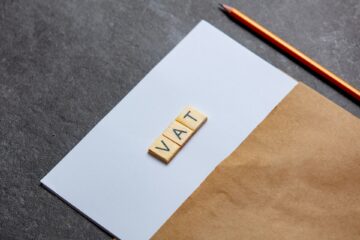Navigating VAT Registration for SMEs in Thailand: A Comprehensive Guide
Value-added tax (VAT) is a critical aspect of doing business in Thailand, and understanding the VAT registration process is essential for small and medium-sized enterprises (SMEs) operating within the country. VAT is imposed by the Thai government on the supply of goods and services, and SMEs must be aware of their obligations to register, collect, and subsequently remit this tax to the Revenue Department to maintain legal compliance. Failing to comply with VAT registration and reporting requirements can result in financial penalties and harm your business’s reputation.
This comprehensive guide delves into the importance of VAT registration for SMEs in Thailand, demystifying the registration process, legal implications, and the potential benefits associated with VAT compliance. Additionally, we’ll explore how Plizz’s professional services can support your SME in managing VAT obligations, streamlining the process, and ensuring your business remains compliant under Thailand’s tax regulations.
Embrace a better understanding of VAT registration for your Thai SME and discover how partnering with Plizz’s expert services can safeguard your business against non-compliance and promote sustainable growth.
Understanding VAT Registration Thresholds in Thailand
When it comes to determining whether your SME must register for VAT in Thailand, it’s vital to understand the relevant registration thresholds. Generally, businesses exceeding these limits are required to register for VAT. The following thresholds apply to Thai SMEs:
1. General Business: For businesses selling goods or providing services, the annual threshold for VAT registration is THB 1.8 million in taxable income.
2. E-commerce and Digital Services: Since September 2021, foreign E-commerce and digital service providers with annual income exceeding THB 1.8 million from Thai customers must also register for VAT.
If your SME exceeds these thresholds, it becomes mandatory to follow the VAT registration process and meet the reporting requirements. Voluntary VAT registration is also possible if your business has not yet surpassed these thresholds, offering potential benefits, such as reclaiming input VAT credits.
Legal Implications and Compliance for VAT Registration
Ensuring compliance with VAT registration requirements is paramount to avoiding potential legal consequences. Some of the critical legal aspects of VAT compliance for SMEs include:
1. Timely Registration: Businesses crossing the VAT registration threshold must promptly apply for registration, typically within 30 days of surpassing the limit. Failure to register on time may result in financial penalties.
2. Accurate Record-Keeping: SMEs must maintain accurate records of their transactions, which will be reviewed during potential audits by the Revenue Department. Transparent record-keeping is essential to avoid penalties due to discrepancies.
3. VAT Reporting and Filing: Registered businesses are required to submit VAT returns (form “Por Por 30”) monthly, regardless of whether they have made sales or incurred expenses. Consistently meeting reporting obligations will help ensure legal compliance and avoid fines.
Step-by-Step VAT Registration Process in Thailand
The VAT registration process for SMEs in Thailand involves several key steps, designed to ensure your business’s compliance with tax regulations. Here’s a brief overview of the process:
1. Prepare Necessary Documentation: Before beginning the registration process, gather all pertinent documents, including your company registration certificate, directors’ ID cards or passports, and evidence of VAT-liable transactions.
2. Submit VAT Registration Application: With the required documents prepared, submit the VAT registration application (form “Phor Phor 01”) to the local Area Revenue Office or, in certain cases, through the Thai Revenue Department’s website.
3. Obtain VAT Certificate: Upon approval of your application, the Revenue Department will issue a VAT certificate (form “Phor Phor 20”) as evidence of your SME’s VAT registration. This certificate must be displayed in a prominent location at your place of business.
4. Use VAT Identification Number: Following registration, your business will be assigned a specific VAT identification number (also known as “TIN”), which must be included on all tax invoices issued by your company.
Benefits of Partnering with Plizz for VAT Compliance
Plizz offers a wide range of professional services to support SMEs in managing their VAT obligations in Thailand. By partnering with Plizz, your SME can reap numerous benefits:
1. Expert VAT Compliance Knowledge: Plizz’s team of experts is adept at navigating Thailand’s tax regulations, ensuring your SME stays legally compliant at all times.
2. Streamlined VAT Management: Plizz takes the burden of VAT management off your plate, allowing you to focus on your core business operations while they handle registration, compliance, and filing duties.
3. Effective Record-Keeping and Reporting: Plizz utilizes advanced software and systems to maintain accurate transaction records and file monthly VAT returns on your behalf, saving your SME valuable time and resources.
4. Dedicated Customer Support: Collaborating with Plizz means receiving personalized customer support, as their team is accessible, responsive to queries, and committed to ensuring your VAT compliance needs are met.
Secure VAT Compliance and Manage Business Growth with Plizz
VAT registration and compliance are crucial aspects of running a successful SME in Thailand. Adhering to VAT registration thresholds, ensuring legal compliance, and accurately reporting and filing required documents will keep your business operating efficiently and penalty-free.
By relying on Plizz’s professional services, your SME can concentrate on its core functions, enjoying peace of mind as experienced professionals handle your VAT obligations. With our expertise, streamlining systems, and dedicated support, Plizz is an ideal partner in navigating the complexities of VAT compliance in Thailand.
Let Plizz support your business in fulfilling its VAT requirements, and embrace the growth and ongoing compliance of your Thai SME through our expert services.



0 Comments